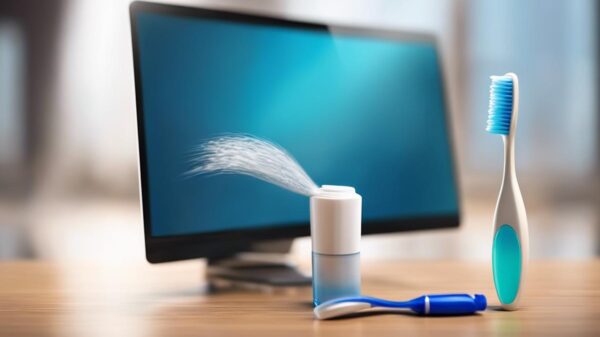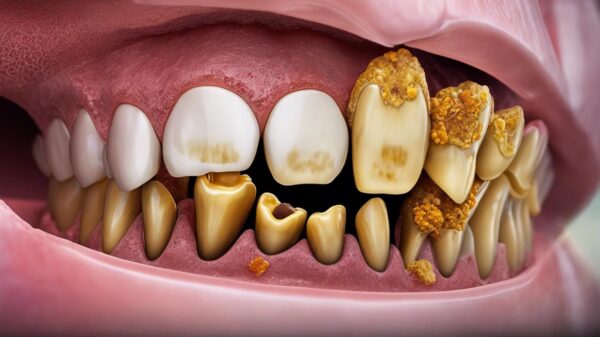How Dangerous is Dry Socket?
Dry socket is most simply defined as the painful condition that can come after the extraction of a baby or permanent tooth, where the blood clot fails to form in the socket. The result is an exposed nerve ending which causes pain and discomfort until it heals.
Despite its name, dry socket isn’t entirely free of blood or oxygen. Rather, it’s mostly filled with dead cells, germs, and pus. The infection occurs when irritants are introduced to an empty tooth socket during or after tooth extraction.
Now that you know what it is, is dry socket dangerous or deadly? Dry socket is potentially dangerous if left untreated. Without treatment, dry socket can lead to an increased risk of infection and complications in the jawbone and surrounding tissues. Dry socket is not contagious.
There’s no direct danger or chance of death from infection. Those who suffer from dry socket are at extremely high risk for re-infection, especially if they’re recovering from the initial injury. In only very severe and specific cases can dry socket lead to death.
Dry socket itself will not cause death, but those who suffer from it may be at risk of complications. Keep reading to learn more about dry socket!
Dry Socket and Related Dangers
Those with a more severe case of dry socket can become susceptible to infection. Symptoms that indicate this possibility include:
- Increased pain and swelling surrounding area of extraction.
- Fever or chills.
- Redness with pain when opening mouth.
- Pus around the wound or at the base of the tooth socket.
 If you notice any of these symptoms, then it is crucial that you seek medical attention immediately to prevent further injury or infection. Even without these signs of infection, there are still potential dangers of dry socket if left untreated for more than a day.
If you notice any of these symptoms, then it is crucial that you seek medical attention immediately to prevent further injury or infection. Even without these signs of infection, there are still potential dangers of dry socket if left untreated for more than a day.
For example, there is a risk of bones in the jaw breaking or shifting if the blood clot that protected the empty tooth socket breaks down too quickly.
Worst Case Scenarios From Dry Socket
While it is possible for the most severe of cases to lead to death, more often than not, dry socket results in a less serious and treatable complication. However, it’s necessary that the person who suffers from dry socket be aware of these dangers.
- Difficulty swallowing or breathing.
- Nerve damage that can cause permanent tooth loss.
- Bone death that leads to tooth loss.
- Jawbone damage resulting in cosmetic defects.
People who have dry socket are at risk of these conditions because the blood clot that forms after a tooth is pulled provides cushioning for the jawbone and surrounding tissues, preventing injury to them both physically and chemically by acting as a barrier between the blood and tissues.
Causes Of Dry Socket
The good news is that dry socket isn’t something that naturally occurs. So most people will never have to worry about this. It’s something that is almost exclusively caused by external factors, including the following:
- Tooth extraction.
- Mouth breathing during recovery from a tooth extraction can dry out socket.
- Certain medications, diets, or illnesses are known to delay the time it takes for bones in your jaw to heal after being crushed or broken down. If you experience dry socket after a tooth extraction, it can be helpful to think about if you have recently changed your diet or started taking any new medicines.
- Alcohol and smoking: These two habits also contribute to the delay in blood clotting and healing that leads to dry socket.
So if you haven’t had any dental work done or recent injuries to your mouth, it’s unlikely you will experience dry socket.
Dry Socket Prevention
The best way to treat dry socket is by preventing it from forming in the first place. There are a few different techniques performed during extraction to minimize the risk of dry socket:
- Keep floss handy while recovering from the procedure, and use it daily. Flossing will help reduce the chances of infection.
- Rinse with warm salt water after the bleeding and pain have stopped.
- Use a moist cotton swab to clean around the wound as often as possible during recovery.
- Try using an antibiotic spray on the area of extraction.
- Follow your dentist’s instructions on what food and drink to consume.
If you follow these steps, then dry socket will be less of a risk for those who just had their teeth pulled. But what if you’ve already got dry socket? Let me share a few ways to help treat it.
Dry Socket Treatment
When it comes to treatment, there are a few different remedies that can be used. One option is dissolving sutures; another method includes packing the socket with antibiotic-coated cotton. This treatment is used to help keep the wound clean and sterile and also aid in recovery.
The most common remedy for dry socket, or at least those treatments that can be performed at home, include:
- Ibuprofen (Advil) or Acetaminophen (Tylenol).
- Gargling with warm saltwater.
- Keeping the socket clean and dry, especially after eating or drinking.
 As you might imagine, all of these remedies can be quite painful and uncomfortable for those suffering from a mild case of dry socket since they must also cope with a new injury on top of the previous one.
As you might imagine, all of these remedies can be quite painful and uncomfortable for those suffering from a mild case of dry socket since they must also cope with a new injury on top of the previous one.
Luckily, there are prescription medications that can be taken to help ease the pain and discomfort.
What To Expect From Dry Socket
If you’re suffering from dry socket, then you should expect some degree of pain regardless of what treatment you use. It’s always a good idea to keep open communication with your dentist throughout the healing process. It may also help to track your pain level with an app or some other method.
As for the new tooth, there are treatments available to protect it during the first few days of healing. Some medications can help move the process along, making it easy for you to get back on track.
Who Is Most Susceptible to Dry Socket And Complications?
Unfortunately, if you’re a smoker or regularly consume alcohol, chances are you’ll be more likely to suffer from dry socket and its complications. There’s also a strong connection between smoking and poor healing times.
Others who may be at a higher risk for dry socket are people with diabetes, pregnant women, the elderly, and those in poor health.
If you’re already at a higher risk for dry socket or any type of infection, then there might be some things that need to be changed prior to your surgery and/or recovery process.
How Long Does It Take For Dry Socket To Heal?
Unfortunately, there’s no easy answer to this question. It really comes down to how long your body needs to recover and heal.
On average, people can expect it to take between five and seven days for dry socket symptoms to disappear completely, but that’s just an estimate. Some individuals may require more time than that or they might not experience any symptoms at all, which is ideal.
No matter what though, it’s important to keep in mind that this process does take time–and depending on your overall health, it could even take longer than average.
 Does Dry Socket Lead To Surgery?
Does Dry Socket Lead To Surgery?
There are times when dry socket leads to surgery. If the condition is severe enough, then it may require a minor procedure or something more major like reconstruction of the jaw bone.
The good news is that this doesn’t happen very often and most people can treat their dry socket on their own at home (if they have experience treating tooth extractions in the past).
If you’re suffering from dry socket and think that this is your only option, then it’s a good idea to talk with your dentist and go over all of your options.
Ask them if they recommend surgery. Be sure to ask what type of procedure it would be (minor or major) and how long they expect the recovery time to be.
Can I Get Dry Socket With Braces?
Unfortunately, it’s possible to get dry socket if you’re wearing braces. This is because the teeth and gums that are underneath braces tend to be more sensitive than they would otherwise be. As such, they’ll require a little more care and attention as your mouth recovers from your surgery.
Even so, there are precautions that can be taken, such as:
- Wearing a custom-fit mouthguard to protect your teeth and gums from accidental roughness.
- Rinsing your mouth with warm salt water after each meal or snack throughout the entire healing process. It’s also recommended that you brush your teeth more often than usual during this time–preferably after each meal or snack as well.
Conclusion
To conclude, dry socket can be dangerous if left untreated. In most cases, it is just an inconvenient pain that you will eventually heal from. Anyone, regardless of health or age, can get dry socket. Some precautions to take are avoiding smoking, alcohol consumption, and poor dental hygiene before surgery.
If you have diabetes or other health conditions then it’s important to let your dentist know so they can make necessary preparations during the surgery. As always, seek dental advice from your dentist and let them know any time you are experiencing dental pain.












